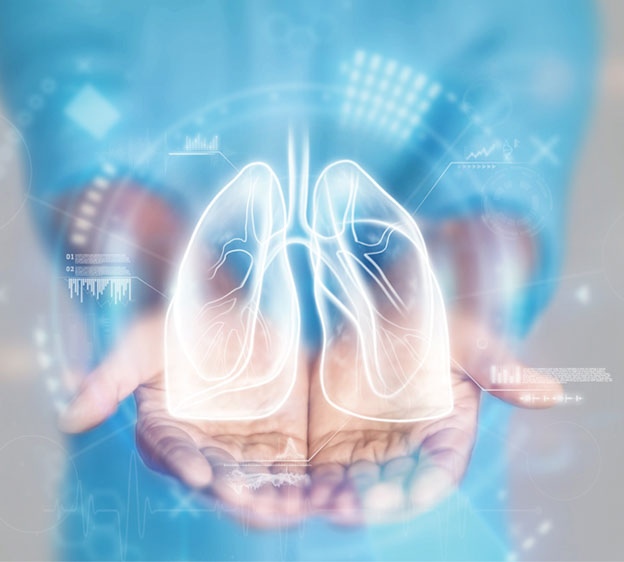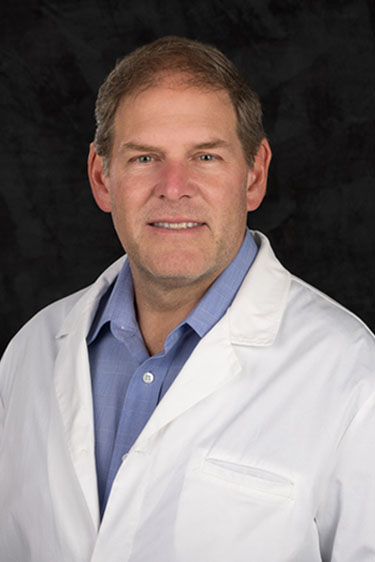
It’s always good to be proactive about your health, but that’s especially true when it comes to the health of your lungs. If you smoke or used to smoke, you have a higher risk for lung cancer. According to the American Cancer Society, lung cancer is the the leading cause of cancer-related deaths in the United States and accounts for 1 in 5 of all cancer deaths. A yearly lung cancer screening with a low-dose CT scan, or LDCT scan, can help find cancer when it is most treatable — before coughing, chest pain and other symptoms appear. Early detection with this test can save lives.
“Lung cancer can develop and grow long before any clues are present,” says Dr. John Krcmarik, a board-certified, fellowship-trained pulmonologist and intensivist at Beaufort Memorial Pulmonary Specialists. “By the time symptoms appear, it may have spread to the bones or other organs, making it much harder to treat. If we can find and treat it early, you’re more likely to have a successful result. Low-dose CT scans, which are better at detecting cancer early compared to a simple chest X-ray, can help us diagnose lung cancer when it’s small and symptom free.”
Read More: Breathing Easy
What Is a Lung Cancer Screening?
Like all forms of screening, a low-dose CT screening for lung cancer looks for the disease when you don’t have symptoms. The test uses X-ray and computer technology to take pictures of your lungs. It’s quick and noninvasive, and you don’t have to do anything to prepare. You receive a small amount of radiation during the screening, but it’s less than the exposure from a regular CT scan.
Low-dose CT lung cancer screenings look for tiny growths in the lungs called nodules. Most lung nodules aren’t a cause for concern, but some can be cancerous. If a screening finds a nodule, additional imaging scans and tests can help determine whether it’s lung cancer. Early detection can make a major difference. If lung cancer is found before it spreads, you have a 63% chance of living at least five years, according to the American Lung Association.
Eligibility Explained
Your primary care provider can help you decide whether yearly lung cancer screenings are right for you based on your risk factors and other criteria. You may be a candidate if you don’t have signs or symptoms of lung cancer and meet certain guidelines set by the U.S. Preventive Services Task Force. These include:
- Being 50 to 80 years old
- Being a current or former smoker (regardless of how long ago you quit)
- Having a smoking history of at least 20 pack years, which means smoking an average of one pack per day for 20 years or two packs daily for 10 years
Read More: Calculate Your Smoking Pack Years
Your primary care provider can help you weigh the benefits of lung cancer screening against the risks and recommend resources and support to help you stop smoking. If you decide to have the screening, you’ll need a referral from your provider. Medicare and most private insurances cover low-dose CT scans for lung cancer screening, although you may be responsible for part of the cost.
Read More: The Top 5 Reasons to Quit Smoking
What to Expect From a Lung Cancer Screening
“Getting a lung cancer screening is simple,” Dr. Krcmarik says. “You’ll lie on your back on a table that slides into the CT scanner, which is a big O-shaped machine. Inside, a tube captures X-ray images of your body at different angles, and a computer uses the information to produce pictures of your lungs. After a minute or so, the scan finishes. It’s a small investment of your time with a potentially priceless payoff.”
With the screening done, you can go back to work, grab a bite to eat, run errands or take care of whatever else your day demands. You and your primary care provider will discuss the results of the scan when they’re available. If the images show potential nodules, you will be referred to a pulmonologist for a consultation. Additional testing, such as a biopsy, may be required.
No matter what the screening finds, you can feel good knowing you took an important step for your health.

Ask your primary care provider whether a low-dose CT lung cancer screening at Beaufort Memorial makes sense for you. Screenings are available at the Beaufort Memorial Keyserling Cancer Center in Beaufort, the New River Cancer Center in Okatie and Island Imaging Center on Hilton Head Island.

